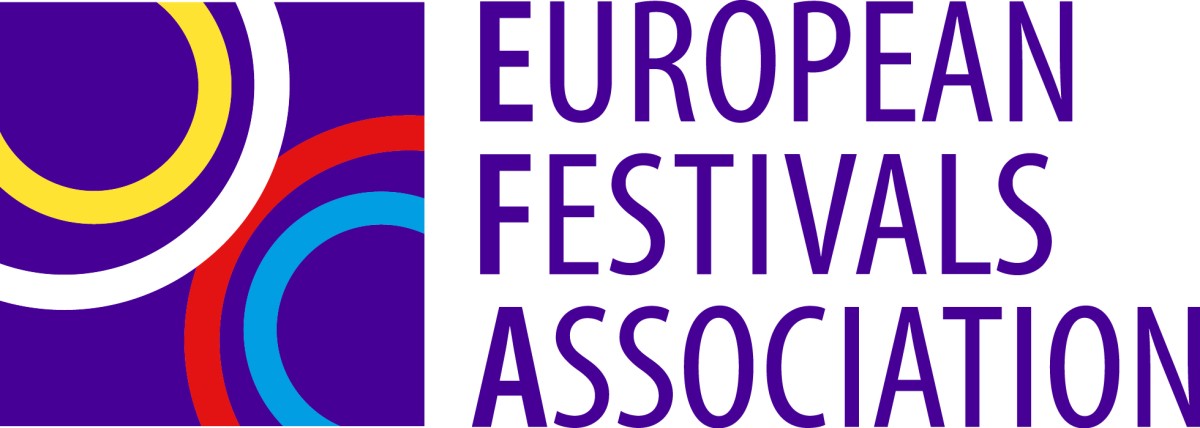"The strategic vision of the Commission’s new policy directions for culture should be rooted in resilience, inclusivity, sustainability, well-being/health and cultural democracy", states the European Festivals Association in their response.
As part of Creatives Unite’s ongoing feature on the Culture Compass, the European Festivals Association (EFA), representing a broad network of festivals operating across borders and rooted in local communities, submitted a written contribution highlighting culture’s contribution to social cohesion, protection of artistic rights, and the development of shared cultural initiatives.
The answers were submitted by Kathrin Deventer, Secretary General of the EFA, and reflect the views of the network. EFA’s vision places the power of cross-border cooperation and the transformative role of the arts at the centre of Europe’s cultural future.
CU: What strategic vision do you think should guide the Commission's new policy directions for culture in the framework of the Culture Compass?
EFA: The European Festivals Association believes that the strategic vision of the Commission’s new policy directions for culture should be rooted in resilience, inclusivity, sustainability, well-being/health and cultural democracy and put the role of cross-border cooperation and the power of the arts, artists and cultural co-operation for Europe at the centre.
The Culture Compass should not only reflect the diverse realities of Europe’s cultural sector but actively empower it as a driving force for social cohesion and democracy in Europe. The European Festivals Association, representing a network of festivals deeply embedded in local communities yet working across borders, is ready to contribute to shaping and implementing this shared vision.
CU: What do you consider to be the three most important elements that characterise the European cultural and creative ecosystem and that should be protected and further strengthened within the framework of the Culture Compass?
EFA: I would like to start my answer by quoting something I recently read in an article by Justin O’Connor, Professor of Cultural Economy at the University of South Australia: “...what I would call ‘art and culture’: the symbolic, the representational, the aesthetic. The keywords are imagination (without which we can never change the world or build a future) and freedom (humans do not act by instinct but must choose what kind of world they want to live in). Art and culture work through these using sound, rhythm, shape, movement, colour, image, metaphors and narratives. They create a knowledge based on the senses and a particular relation to the world, one different to that of analytical reason, science, administration, or technology”. I believe this reflects in a quite precise way the uniqueness of culture and its ecosystem and supports the fact that culture needs a strong, standalone and structural funding line in order to have the means to exercise its intrinsic power with imagination and freedom.
At the same time, Europe’s richness lies in its cultural diversity and the ability of artists, festivals, and organisations to collaborate across borders. Festivals, in particular, are spaces where this diversity is brought to life; they are laboratories for experimentation and spaces where to imagine and rehearse the future(s) we want to live. The EU’s cultural policy should further invest in and expand cross-border mobility, co-creation platforms and support small and emerging professionals offering and facilitating these spaces.
As a third point, as described in the
Culture and democracy, the evidence publication from the European Commission, culture plays a powerful role in shaping active citizenship and community cohesion. As highlighted in this report citizens who take part in cultural activities are significantly more likely to engage in democratic and civic life. Moreover, we believe that the Culture Compass needs to strengthen mechanisms that not only promote the democratisation of culture, but also through which cultural democracy needs are exercised (a bottom-up approach that promotes participation, co creation, and cultural equity—everyone has the right not only to access culture, but also to create and define it).
CU: What do you see as the three most important challenges facing the cultural and creative industries today, which could be addressed by the Culture Compass in order to ensure a thriving and sustainable future for creativity in Europe?
EFA: The biggest challenge that is continuously heard and repeated by many professionals within the cultural sector is the lack of financial and structural support. Many artists and cultural professionals are forced to combine multiple jobs and/or rely on unstable, short term contracts in order to survive, leaving little time and energy for their creative work.
This precarity is also linked to the support models that are based on competition and market-driven metrics instead of focusing on healthier ways of collaboration. As described in The New International - Against All Odds, a recent publication by IETM, “it is illogical that there is often little opportunity to explore shared interests, concerns, and aspirations – beyond the short-term contract, and to deepen relationships that would involve communities and allow to explore pathways for collective impact”(p.18). This report shows that there is an urgent need to shift the short-term project-based focus towards a model based on building long term relations. This is also linked to the idea of Pascal Gielen, on how cultural commons can serve as a foundation for trust in contemporary societies.
As a third challenge we would like to mention the rise in political pressure, censorship, and the instrumentalisation of culture across Europe in the recent years. Artistic freedom is increasingly under threat, that is why it should be addressed in the Culture Compass as well as the Artistic Freedom dimension should be incorporated in the Rule of Law report.
CU: What do you consider to be the three most urgent priorities or actions to be undertaken within the framework of the Cultural Compass?
EFA: 1. Investing in the people behind the projects
2. Reimagining how we collaborate and support one another
3. Arts and culture need to be at the centre of the European development
---
Images: 1) Main image: Courtesy of Kathrin Deventer
2) EFA's official logo, Courtesy of EFA









